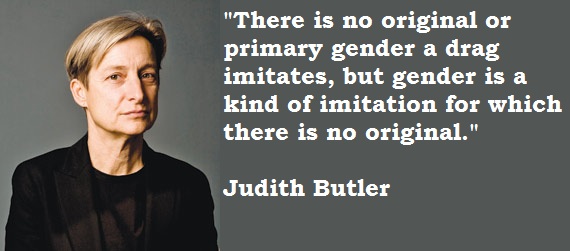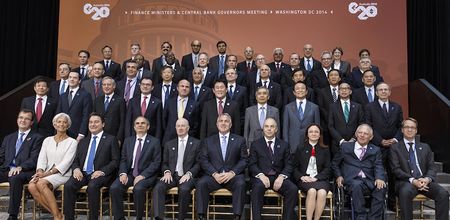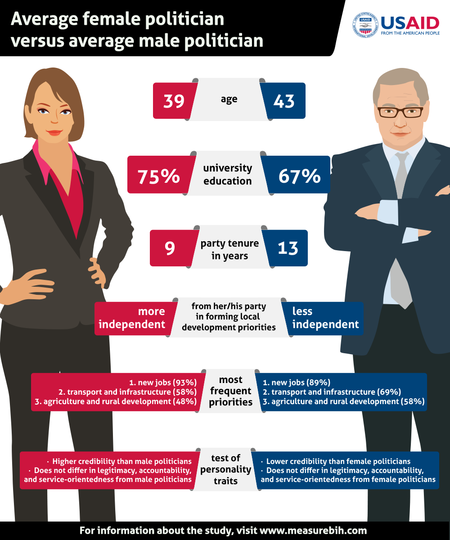Gender Inequality in North American Politics:Informal Influences
To this day, industrialization, the invention of new technologies, and the idea of capital accumulation have enabled women to enter the workforce. There is a widespread belief that gender discrimination and inequality are no longer tolerated in western societies. Nonetheless, the glass ceiling remains unbreakable for many women, especially for those who are in the public sphere of politics.
Introduction
Since the rise of capitalism, there is a significant increase in women's participation in the workforce, which enables them to become economically independent. For the past three decades, women are having higher college graduation rates and the gender gap reversal in education has resulted in the decline of educational hypergamy. Nevertheless, the increase in the proportion of women in the US Congress is less than 8% in the past two decades, while there is a less than 4% increase in the percentage of female state legislators from 1993 to 2012 [1] Based on existing literature, the contributing factors to the lack of women in electoral offices can be categorized into two main groups: formal and informal influences. While formal influences, namely the configuration of the electoral system, party ideologies, and gender quota have received considerable attention from scholars; the informal cultural and sociological influences that prevent women from running have not.
Factors
Individual Candidate Attributes
When considering the factors that contribute to the lack of women in electoral offices, the culprit is being pointed towards individual candidate attributes. Female candidates are often considered as having a lower level of educational attainment and lack the competency to comprehend, analyze and explain complex concepts.[1] Furthermore, the social construction of femininity is associated with traits like softheartedness and understanding as opposed to the image of an ambitious and aggressive politician.
As explained by Althusser [2], an individual is always perceived as being a subject. Through the process of interpellation individual gains his or her identity by "practicing the rituals of ideological recognition" [2]. In terms of gender norm conformity, the public's attitude toward accepting women's participation in the public sphere play an important role in both the confidence level of female candidates and their likelihood of getting elected. According to an American research,[3]in comparison to men, women are much less likely to think they are qualified to run for office and they tend to be less competitive and confident. Young females are less likely than young boys to participate in aggressive and competitive sports. This is often due to parents' socialization of gender in their children.
Gender Stereotypes
In the research findings of Lawless: “Women are less frequently encouraged to run for office at the suggestion of both those involved in politics and other personal contacts.”[3] In fact, the upbringing of young girls creates norms that guide their behaviors by internalizing cultural messages. A US-based study[4] found that girls as young as six years old hold the belief that intelligence is a male trait. When girls reach high school, they are also less likely to choose fields such as physics, mathematics, and politics as their academic paths. The research also found that early in children's development, parents heavily influence their children's socialization to gender roles. Girls believe brilliance is a male trait, research into gender stereotypes shows
Biopower
Foucauldian power theory [5] rests upon the distinction between sovereign power and biopower with the later gradually taking over the former. While sovereign power is defined as a repressive and vertical power that takes the right of life and death away from its subjects, biopower takes the forms of the discipline of the docile body and the regulation of the reproductive capacity of the population. Notably, every agent is both the recipient of power and the reproducer of power. As an example, the socially constructed gender role exercises its regulatory power by constructing scientific knowledge of the mother-child relationship. By placing an emphasis on the role mothers play in their children's health outcomes, emotional well-being, and academic capabilities, women are expected to devote their lives to taking care of the family. While this social expectation often becomes an obstacle in women's career development path, nevertheless, an American survey in 2013 reveals that 51% of survey respondents believe that children with stay-at-home mothers achieve better outcomes while only 8% say the same about fathers [6] In other words, the elimination of legal gender discrimination at the institutional level is being replaced by the internalization of scientific knowledge that regulates people on how they live their lives. For dual-earner families, women are expected to work same hours as men while taking on caregiving roles at home. This unequal treatment of women and men is both justified and solidified by scientific knowledge that structurally oppresses women. As the public internalizes the idea that women's involvement in household tasks is beneficial, it becomes natural to demand women to perform unpaid household works, which creates an obstacle in their career development. On the other hand, these knowledge sets a very high standard on how to be a good mother and good wife. Not only are women responsible for the physical wellbeing of their children, the social construction of motherhood also expect women to be responsible for their children's psychological and emotional wellbeing, academic performance, and interest in extracurricular activities [7].
Women's Participation in the Universal Public Sphere
German sociologist and philosopher Jürgen Habermas brings to light the concept of a universal public sphere where private people gather together to exercise the public use of reason and rational-critical debate. In his own words, "The bourgeois public sphere may be conceived above all as the sphere of private people come together as a public" [8]. While he posits convincing arguments promoting a bourgeoisie public sphere, Feminist scholar Nancy Fraser [9] argues that gender inequality is predominant in Habermas'notion of publicity. For instance, Habermas' public sphere claims to be accessible to all. However, in reality, race, gender, and education are all factors that were used to exclude individuals from participating in public discussions. While women's appearance in politic often receives negative attention, it is also worth noting that women and racial minorities are less likely to have access to public education or higher education. Therefore, although the bourgeoisies' public sphere claims to be where private individuals gather together to form rational discussions, nevertheless, women, racial minorities and members of the lowest socio-economic class are not included.
Feminist Response
Marxist Feminism and Economic Factors
The Marxist approach to gender inequality stems from the dual-system theory of capitalism and patriarchy. During the time of tribal ownership, "the social structure is limited to an extension of the family; patriarchal family chieftains, below them the members of the tribe, finally slaves."[10] As capitalism emerges, the emphasis on a nuclear family "where wife and children are the slaves of the husband” demonstrates a division of labor, which assigns male with a productive labor compensated by wage and female with a domestic role that remains uncompensated in the capitalist system."[10]
This type of family structure assigns the role of breadwinner to men and the role of family caregiver to women. Much like the relationship between the proletariats and their bourgeois masters, men are recognized by the capitalist system, as essential laborers for the production of commodities while women's role seems secondary. As a result, this unequal distribution of labor further solidifies men's superior position in the household due to the fact that women are economically dependable on men because women's domestic work receives no salaries.
Proponents of this theory are likely to object on the ground that the capitalist society liberates women from being economically dependable by allowing them into the labor force. In other words, Marx's theory is limited in accounting for the positive effects of the legal protection of decentralized private ownership on women's rights. Nevertheless, women's gender role that is determined by the division of labor expects women to behave in a certain way that corresponds to the definition of femininity. This prevents women from having equal opportunity to have success in running for offices, which is primarily male dominated because it fits the definition of masculinity. Female politicians are under pressure to conform to the norms of the society while struggling to balance work and family as they are assigned the role of caregivers in households.
Gender Performativity
In Gender Trouble, Judith Butler [11]puts forth a controversial argument that one's gender is constructed through his or her repetitive performance of gender. As an example, newborn boys and girls are given different colored clothing and different types of toys. Young girls are given pink clothing and Barbie dolls to play with, while young boys often wear the color blue and are encouraged to play with toy cars and to engage in competitive sports. On a more concrete term, when two toddlers perform the same action such as kicking upward, parents and friends of the male toddler are more likely to make a comment that the boy wants to be a boxer when he grows up. However, the female toddler receives no such comment, although she performs the exact same action. This example portrays how gender behaviors are not the result of biological predisposition, but rather due to the repetition of acts, mimicking the dominant discourse of gender. Butler's concept of gender performativity contributes to the understanding of gender disparity in self-perception and self-confidence. The idea that differences in gender are socially constructed as opposed to biological predisposed allows Butler to examine gender differences in social behavior from a perspective that is alien to the existing social system. Without relying on pre-existing social theories emphasizing the causal roles of psychological and biological factors in gender differences, Butler brings to light the fact that encouraging the repetition of certain behaviors in a child's upbringing have an important effect on his or her self-regulating behavior and outlook on life.

Further Reading
Judith Butler: Your Behavior Creates Your Gender
Girls believe brilliance is a male trait, research into gender stereotypes shows
Men Rule: The Continued Under- Representation of Women in U.S. Politics
References
- ↑ 1.0 1.1 Aguiar, G., Redlin, M. (2014). Women's Continued Underrepresentation in Elective Office. Great Plains Research, 24(2).
- ↑ 2.0 2.1 Althusser, L. (1969). Ideology and Ideological State Apparatuses, Lenin and Philosophy and Other Essays. London: New Left Books.
- ↑ 3.0 3.1 Lawless, J., Fox, R. (2012). Men Rule: The Continued Under- Representation of Women in U.S. Politics. Retrieved from http://www.american.edu/spa/wpi/upload/2012-Men-Rule-Report-web.pdf.
- ↑ Davis, N. (2017, January 27). Girls believe brilliance is a male trait, research into gender stereotypes shows. The Guardians. Retrieved from https://www.theguardian.com/education/2017/jan/26/girls-believe-brilliance-is-a-male-trait-research-into-gender-stereotypes-shows.
- ↑ Foucault, M., Foucault, M., Foucault, M., & Foucault, M. (1978). The history of sexuality. New York: Pantheon Books.
- ↑ Wang, W., Kim, P., & Paul, T. (2013). Breadwinner moms: Mothers are the sole or primary provider in four-in-ten households with children; public conflicted about the growing trend. Pew Research Center, Social & Demographic Trends, 1-19.
- ↑ Hays, S. (1998). The Cultural Contradictions of Motherhood. New Haven: Yale University Press.
- ↑ Habermas, Jürgen. "The Public Sphere: An Encyclopedia Article (1964)." New German Critique, no. 3, 1974, pp. 49-55.
- ↑ Fraser, Nancy. "Rethinking the Public Sphere: A Contribution to the Critique of Actually Existing Democracy." Social Text 25/26 (1990): 56-80. Print.
- ↑ 10.0 10.1 Marx, K., Engels, F., (1974). The German ideology. London: Lawrence & Wishart.
- ↑ Butler, J. (1990). Gender trouble: Feminism and the subversion of identity. New York: Routledge.


